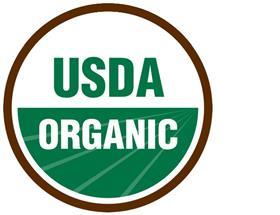
The US government has criticised the body established to oversee the marketing and labelling of organic food in the country for its “inadequate” enforcement of organic law under the Bush administration.
The report from the Office of the Inspector General at the USDA found that officials at the National Organic Program (NOP) needed to “improve their enforcement of … regulations” and their “resolution of complaints”.
USDA officials reportedly claim they are aware of the deficiencies and are working tocorrect them, including reinforcing its examination of foreign meat and fresh produce inspectors.
The Obama administration has also pledged to step up oversightof organics.
The Inspector General cited 14 areas of major concern, including:
• 24 of 44 foreign food inspection agents went seven years without onsite reviews from the USDA’s National Organic Program. The agents were responsible for certifying that organic fruits, vegetables, beef and poultry being shipped into the US met federal organic standards.
• California inspectors are not equipped to enforce the organic laws.
• In five cases where companies were known to be selling inorganic food illegally under the USDA Organic label, the USDA never issued the recommended enforcement action against one of the five organic operations, one that improperly marketed non-organic mint under USDA’s organic label for two years. In the other four cases, the enforcement actions took between seven and 32 months to issue, during which time the firms continued to improperly market their products as certified organic.
• Since 1990, organic laws have called for periodic residue testing. None of the regulating agencies investigated had done any residue testing.
• Of 41 complaints filed since 2004, no fewer than 19 cases were not only unresolved by 2009 – in addition, regulators had no idea of their status.
• The USDA completely failed to do required onsite reviews of at least one foreign certifying agent.
“The NOP, created in October 2002, has the responsibility to assure consumers that organic products meet uniform standards and that they are appropriately labelled,” the report said.
“However, we believe that NOP officials need to further improve programme administration and strengthen their management controls to ensure more effective enforcement of programme requirements when serious violations, including operations that market product as organic while under suspension, are found.
“In addition, they need to strengthen their oversight of certifying agents and organic operations to ensure that organic products are consistently and uniformly meeting NOP standards.”
Organic advocates have welcomed the inspector-general’s report, including The Organic Trade Association, organic watchdog The Cornucopia Institute, and AMS Administrator Rayne Pegg.
“This review provides valuable information as we work to continue improving how USDA administers the National Organic Program and ultimately to ensure the integrity of organic agricultural products,” said Adminstrator Pegg.






No comments yet